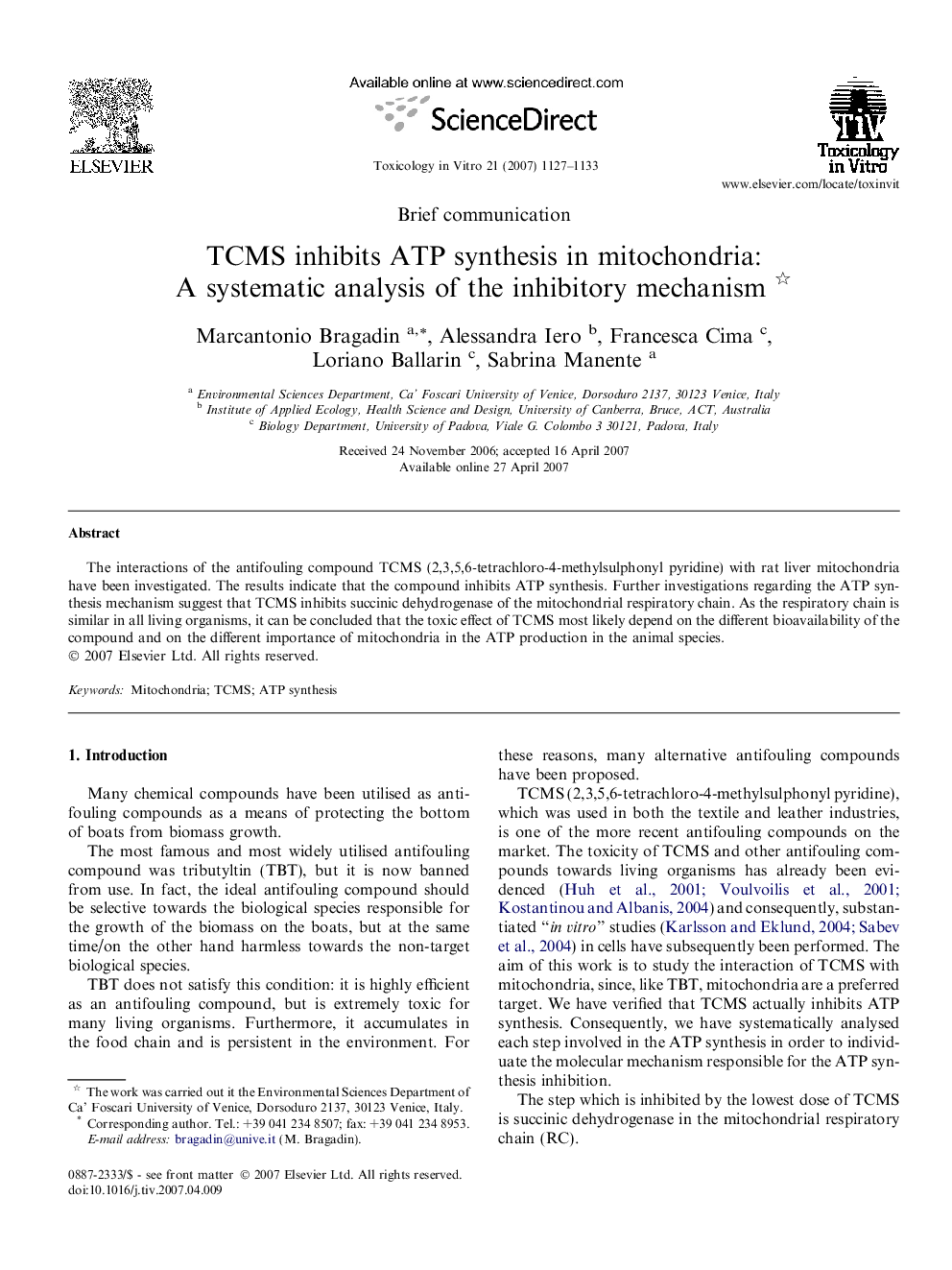| Article ID | Journal | Published Year | Pages | File Type |
|---|---|---|---|---|
| 2603777 | Toxicology in Vitro | 2007 | 7 Pages |
Abstract
The interactions of the antifouling compound TCMS (2,3,5,6-tetrachloro-4-methylsulphonyl pyridine) with rat liver mitochondria have been investigated. The results indicate that the compound inhibits ATP synthesis. Further investigations regarding the ATP synthesis mechanism suggest that TCMS inhibits succinic dehydrogenase of the mitochondrial respiratory chain. As the respiratory chain is similar in all living organisms, it can be concluded that the toxic effect of TCMS most likely depend on the different bioavailability of the compound and on the different importance of mitochondria in the ATP production in the animal species.
Keywords
Related Topics
Life Sciences
Environmental Science
Health, Toxicology and Mutagenesis
Authors
Marcantonio Bragadin, Alessandra Iero, Francesca Cima, Loriano Ballarin, Sabrina Manente,
